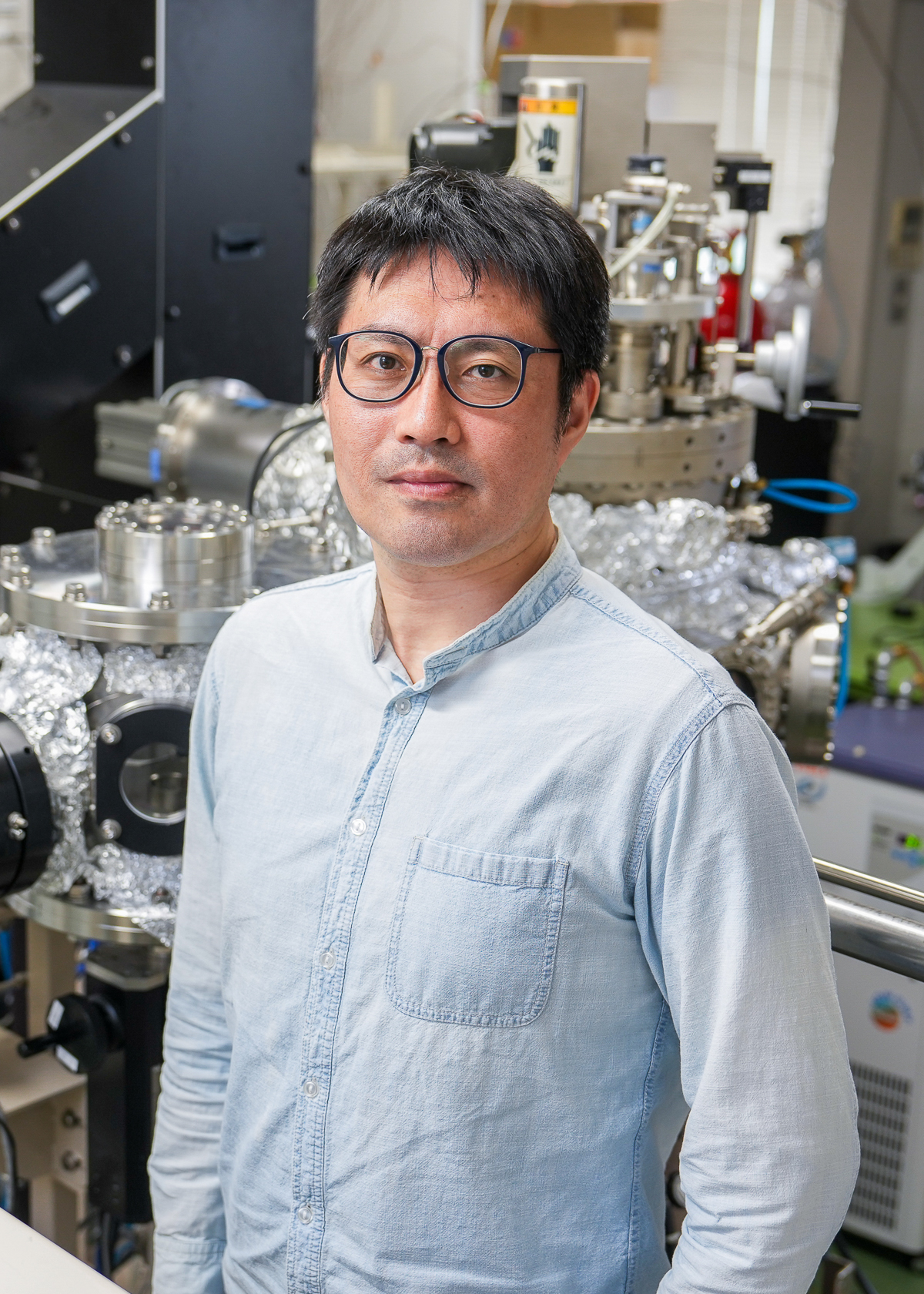PI Yoshitaka Aoki Professor
PI message
In order to achieve zero emissions and put a brake on global climate change, we must break away from carbonaceous chemical processes consuming petroleum resources and realize new “manufacturing” chemistry utilizing water, air, and related natural resources with renewable energy. In fact, gaseous water, i.e. steam can be electrolyzed as well as liquid water, and moreover, the voltage needed for the electrolysis of the former is much lower than that for the later. Hence steam electrolysis can produce ‘green’ hydrogen while minimizing the consumption of electricity generated from natural energy. In the Electronic Materials Chemistry Laboratory, we have developed a “steam electrolysis cell” that efficiently produces hydrogen from steam using electric power from renewable energy with waste heat. We are also working on the development of a “co-electrolytic cell” that produces useful compounds such as CO and NH3 by electrochemically reacting the green hydrogen with CO2 and N2 gases. The potential of the renewable energy power generation in Japan is speculated to be equivalent to twice the current total power generation in Japan. This situation indicates the energy chemists have a great opportunity to make an innovation and lead the world’s GX.
Research
In Electronic Materials Laboratory, we have designed an inorganic material that generate mobile “protons (H+)” and “hydride ions (H-)” in the crystal lattices, and have developed unique inorganic ionic conductors in which hydrogen redox between H+ and H- proceeds according to the hydrogen chemical potential. Based on these materials, we also create a “solid-state ionic device” that simultaneously conducts electrochemical water splitting and reduction/hydrogenation reaction with electricity derived from renewable energy so as to produce useful chemical compounds from common raw substances such as water and air. Our skills are as follows: inorganic material design using first-principles calculation, precise structural and electronic state analysis using advanced X-ray and neutron beams, device fabrication by solid-state and vacuum processes, and electrochemical evaluations of the device performances.
Member
-
Yoshitaka AokiProfessorResearch FieldElectrochemistry, Solid State Ionics, Electrolytic Reaction, Fuel Cell
-
Hiroto TachikawaSpecially Appointed Associate Professor
-
SeongWoo JeongAssistant ProfessorResearch FieldSolid State ionics, solid oxide cells, Design of electrode materials for electrolysis, Analysis of electrode reactions
Contact
y-aoki(at)eng.hokudai.ac.jp


